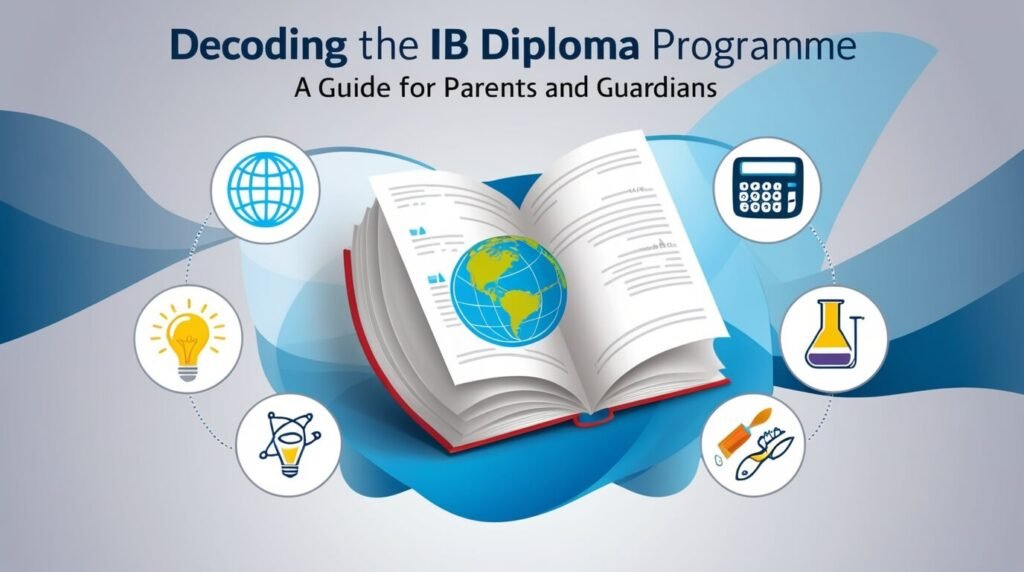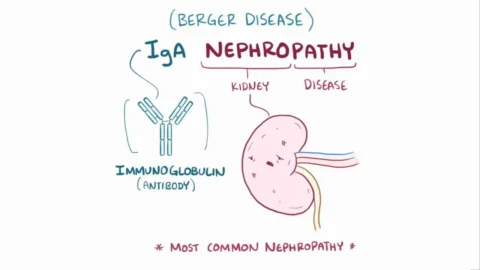The International Baccalaureate (IB) Diploma is a globally recognized university preparation program that educates students through a comprehensive curriculum designed to develop creative, critical thinkers, effective communicators, and globally aware citizens. The IB Diploma is a challenging alternative for students who seek to expand their educational horizons beyond traditional curricula. It offers high-quality international education to a worldwide community of schools and is recognized by post-secondary institutions around the globe. With more than 900,000 students enrolled in over 140 countries, the IB Diploma has become a premier choice for students who want to stand out in their university applications and future careers.
Please see below for important documents and information.
General Information:
- IB Brochure
- 10 Reasons to do IB
- Points Matrix
- IB Transfer Credits for MUN
- Key findings from research on the impact of the Diploma Programme
- Key findings from research on the DP Core
- Global research findings on the Diploma Programme
- VIDEO: Panel Discussion on International Admission in the IB Context
- 2020 IB Programme Standards and Practices
Subject Briefs:
- Language A: Literature HL
- Language B: French HL
- Spanish ab initio SL
- History HL
- Biology SL/HL
- Chemistry SL/HL
- Physics SL/HL
- Math Analysis and Approaches SL/HL
- Music SL
- CAS
- Extended Essay
- Theory of Knowledge
IB Juniors:
IB Seniors:
- May 2025 HHM IB Examination Schedule
- May 2025 Examination Schedule
- May 2026 Examination Schedule
- IB School Deadlines May 2024-25
- Requesting IB transcripts for universities
- Requests for Results Services form
Policies:
- IBDP Admission Policy 2023
- IB Assessment Policy 2023
- Academic Integrity Policy 2024
- Inclusive Assessment Policy 2023
- Language Policy 2023
Incoming Students/Application Documents:
Information for Incoming Students:
- IB Information for Incoming Level 1 Students
- IB Course Selections for Incoming Juniors
- The IB Learner Profile
Application Files/Links:
- Application Checklist
- Level 1 Course Selection 2024-2025
- Holy Heart of Mary Bursary Application
- Student Transfer Request
- IB Application W2024 With Recommendations
- Application Upload Form
- Teacher Recommendation Form (Google Form)
What is the IB Diploma Program?
The IB Diploma Program (DP) is an academically rigorous and balanced two-year program that prepares students aged 16-19 for success at university and life beyond. The program is known for its challenging curriculum, which encourages students to think critically, engage in inquiry-based learning, and develop skills that are essential for lifelong learning.
The IB Diploma curriculum consists of six subject groups, including Language and Literature, Language Acquisition, Individuals and Societies, Sciences, Mathematics, and The Arts. In addition to these subject groups, students are required to complete three core components: Theory of Knowledge (TOK), Creativity, Activity, Service (CAS), and the Extended Essay (EE).
Theory of Knowledge (TOK): This course encourages students to reflect on the nature of knowledge and how we know what we claim to know. It challenges students to think critically about different ways of knowing and areas of knowledge.
Creativity, Activity, Service (CAS): CAS requires students to engage in a range of activities that involve creativity, physical activity, and community service. It aims to develop students’ personal and interpersonal skills by encouraging them to take on new challenges and contribute to society.
Extended Essay (EE): The Extended Essay is an independent research project that allows students to explore a topic of interest in depth. It helps students develop research, writing, and critical thinking skills that are essential for university-level work.
Benefits of the IB Diploma Program
University Recognition: The IB Diploma is recognized by universities around the world for its rigorous academic standards. Many universities offer advanced standing or course credit to IB graduates, giving them a head start in their higher education journey.
Comprehensive Curriculum: The IB Diploma curriculum is designed to provide a well-rounded education. Students study a wide range of subjects, which helps them develop a broad base of knowledge and a deeper understanding of different disciplines.
Development of Critical Thinking Skills: The program places a strong emphasis on critical thinking and inquiry-based learning. Students are encouraged to question assumptions, analyze complex issues, and develop well-supported arguments.
Global Perspective: The IB Diploma promotes international-mindedness and encourages students to consider issues from multiple perspectives. This global outlook helps students become more aware of cultural differences and prepares them to be active participants in an increasingly interconnected world.
Holistic Development: Through the CAS component, students engage in activities that promote personal growth, physical well-being, and social responsibility. This helps students develop important life skills beyond academics, such as teamwork, leadership, and empathy.
How Does the IB Diploma Compare to Other Programs?
The IB Diploma is often compared to other university preparation programs, such as Advanced Placement (AP) or A-levels. While all of these programs provide rigorous academic challenges, the IB Diploma stands out for its holistic approach to education. Unlike AP or A-levels, which focus on individual subjects, the IB Diploma requires students to study a wide range of subjects and complete the core components, which promote critical thinking, research skills, and community engagement.
Who Should Consider the IB Diploma?
The IB Diploma is ideal for students who are motivated, curious, and willing to take on academic challenges. It is a demanding program that requires time management, self-discipline, and a strong commitment to learning. Students who are interested in developing a global perspective, enhancing their critical thinking skills, and preparing for success at university will benefit greatly from the IB Diploma.
Frequently Asked Questions about the IB Diploma
Q1: What is the IB Diploma Program?
The IB Diploma Program is a two-year, academically rigorous program that prepares students aged 16-19 for success at university and beyond. It includes a comprehensive curriculum with six subject groups and three core components: Theory of Knowledge (TOK), Creativity, Activity, Service (CAS), and the Extended Essay (EE).
Q2: How is the IB Diploma different from other high school programs?
The IB Diploma differs from other high school programs, such as AP or A-levels, in its holistic approach to education. It requires students to study a wide range of subjects, complete core components, and develop skills that go beyond academics, such as critical thinking and community engagement.
Q3: What are the benefits of completing the IB Diploma?
The benefits of completing the IB Diploma include university recognition, a comprehensive curriculum, development of critical thinking skills, a global perspective, and opportunities for holistic development through CAS activities.
Q4: Is the IB Diploma recognized by universities?
Yes, the IB Diploma is recognized by universities around the world for its rigorous academic standards. Many universities offer advanced standing or course credit to IB graduates, which can help them get a head start in their higher education.
Q5: What subjects are included in the IB Diploma curriculum?
The IB Diploma curriculum includes six subject groups: Language and Literature, Language Acquisition, Individuals and Societies, Sciences, Mathematics, and The Arts. Students are required to choose one subject from each group.
Q6: What is Theory of Knowledge (TOK)?
Theory of Knowledge (TOK) is a core component of the IB Diploma that encourages students to reflect on the nature of knowledge and how we know what we claim to know. It challenges students to think critically about different ways of knowing and areas of knowledge.
Q7: How does CAS contribute to the IB Diploma?
Creativity, Activity, Service (CAS) is a core component of the IB Diploma that requires students to engage in creative pursuits, physical activity, and community service. CAS helps students develop important life skills, such as teamwork, leadership, and empathy.
Q8: What is the Extended Essay (EE)?
The Extended Essay (EE) is an independent research project that allows students to explore a topic of interest in depth. It helps students develop research, writing, and critical thinking skills that are essential for university-level work.
Q9: How challenging is the IB Diploma?
The IB Diploma is a challenging program that requires dedication, time management, and a strong commitment to learning. However, students who are motivated and willing to take on academic challenges will find the program rewarding and beneficial for their future studies.
Q10: Who can enroll in the IB Diploma Program?
The IB Diploma Program is open to students aged 16-19 who are willing to take on an academically rigorous curriculum and are interested in developing a global perspective. Enrollment is typically done through schools that are authorized to offer the IB Program.
Conclusion
The IB Diploma is an internationally recognized program that provides students with a comprehensive education, helping them become creative, critical thinkers, effective communicators, and globally aware citizens. With a challenging curriculum, core components that promote holistic development, and recognition from universities worldwide, the IB Diploma is an excellent choice for students who wish to expand their educational horizons and prepare for success at university and beyond.





